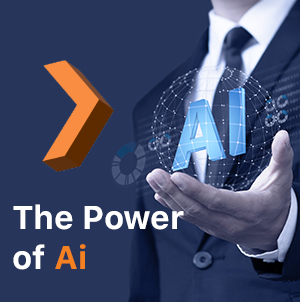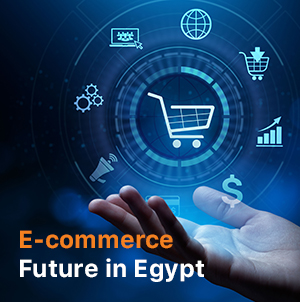
In today’s ever-evolving digital landscape, businesses are constantly seeking new ways to connect with their target audience and drive growth. Two powerful forces that have revolutionized the way companies approach marketing are artificial intelligence (AI) and digital marketing strategy. AI technology has enabled businesses to personalize marketing messages, automate repetitive tasks, and gain valuable insights into customer behavior. Coupled with a well-crafted digital marketing strategy, businesses can leverage these advancements to enhance their brand presence, engage with customers on a deeper level, and ultimately drive business success.
Understanding the Role of Artificial Intelligence in Digital Marketing
Artificial intelligence refers to computer systems that can perform tasks that typically require human intelligence, such as speech recognition, problem-solving, and decision-making. In the realm of digital marketing, AI has become a game-changer by offering businesses the ability to analyze vast amounts of data, predict customer behavior, and optimize marketing campaigns. Let’s explore some key areas where AI is making a significant impact:
Personalization at Scale
One of the most significant advantages of AI in digital marketing strategy is the ability to personalize marketing messages at scale. By leveraging AI algorithms, businesses can analyze customer data, such as browsing behavior, purchase history, and demographics, to deliver highly targeted and relevant content to individual customers. Personalization fosters a deeper connection with customers, enhances their overall experience, and increases the likelihood of conversion and brand loyalty.
Automation of Repetitive Tasks
AI-powered automation can streamline and optimize repetitive marketing tasks, freeing up valuable time for marketers to focus on strategic initiatives. Tasks such as data entry, content scheduling, and email marketing can be automated, allowing marketers to allocate their time and resources more efficiently. Automation not only increases productivity but also reduces the risk of human error, ensuring consistent and seamless execution of marketing campaigns.
Enhanced Customer Insights
AI technology enables businesses to gain valuable insights into customer behavior by analyzing vast amounts of data from various sources. By leveraging machine learning algorithms, businesses can uncover patterns, trends, and correlations that may not be apparent to human marketers. These insights empower businesses to make data-driven decisions, refine their targeting strategies, and optimize marketing efforts for maximum impact.
Optimized Advertising Campaigns
AI plays a crucial role in programmatic advertising, where ads are served to specific audiences based on real-time data and bidding algorithms. AI algorithms analyze user behavior, demographics, and contextual data to optimize ad placement, timing, and targeting. This results in more relevant and engaging ads, higher click-through rates, and improved return on advertising spend. AI-driven programmatic advertising can provide businesses with a competitive edge in the crowded digital advertising landscape.
Successful Examples of AI and Digital Marketing Strategy
Several companies have successfully harnessed the power of AI and digital marketing strategy to achieve remarkable results. Let’s explore some notable examples:
1. Amazon
Amazon, the world’s largest online retailer, utilizes AI extensively to personalize product recommendations for its customers. By analyzing vast amounts of customer data, including purchase history, browsing behavior, and demographics, Amazon’s recommendation engine suggests products that are highly relevant to individual customers, increasing the likelihood of purchase and customer satisfaction.
2. Netflix
Netflix, the leading streaming platform, leverages AI algorithms to provide personalized recommendations to its subscribers. By analyzing viewing habits, ratings, and user preferences, Netflix’s recommendation engine suggests movies and TV shows that align with each user’s taste, enhancing the overall user experience and increasing engagement.
3. Spotify
Spotify, the popular music streaming service, utilizes AI to curate personalized playlists for its users. By analyzing listening history, user-generated playlists, and music preferences, Spotify’s recommendation engine creates customized playlists that cater to individual users’ musical taste, driving user engagement and satisfaction.
4. Coca-Cola
Coca-Cola utilizes AI and machine learning algorithms to optimize its digital advertising campaigns. By analyzing consumer data, Coca-Cola can deliver targeted ads to specific audiences, ensuring maximum impact and return on advertising spend. AI also helps Coca-Cola identify emerging trends and consumer preferences, enabling the company to adapt its marketing strategies in real-time.
The Future of AI and Digital Marketing Strategy
The potential for AI and digital marketing strategy is vast and continues to evolve rapidly. As technology advances and AI algorithms become more sophisticated, businesses can expect even more innovative and impactful applications. Some potential future developments include:
1. Voice Search Optimization
As voice-activated devices and virtual assistants become increasingly popular, optimizing digital marketing strategies for voice search will be paramount. AI-powered natural language processing algorithms can help businesses understand and respond to voice queries effectively, ensuring their content is discoverable in this emerging channel.
2. Chatbots and Virtual Assistants
Chatbots and virtual assistants powered by AI are already transforming customer service and support. These intelligent bots can provide instant responses to customer queries, offer personalized recommendations, and facilitate seamless customer interactions. In the future, businesses can expect even more advanced chatbots capable of understanding complex customer needs and delivering highly tailored experiences.
3. Predictive Analytics
AI can enhance predictive analytics capabilities, enabling businesses to anticipate customer behavior, market trends, and emerging opportunities. By leveraging AI algorithms, businesses can make accurate forecasts, optimize marketing strategies, and stay ahead of the competition.
4. Augmented Reality (AR) and Virtual Reality (VR)
AI can enhance AR and VR experiences by analyzing user preferences, behavior, and environmental data. By understanding user context, AI algorithms can deliver personalized and immersive AR/VR content, creating unique and engaging brand experiences.
In conclusion, AI and digital marketing strategy have revolutionized the way businesses approach marketing. By leveraging AI-powered technologies, businesses can personalize marketing messages, automate repetitive tasks, gain valuable customer insights, and optimize advertising campaigns. Companies like Amazon, Netflix, Spotify, and Coca-Cola have successfully utilized AI and digital marketing strategy to enhance customer experiences and drive business success. As technology continues to evolve, businesses can expect even more innovative applications of AI in digital marketing, opening up new avenues for growth and engagement with their target audience. To stay competitive in the modern business landscape, embracing AI and incorporating it into a well-crafted digital marketing strategy is essential.






